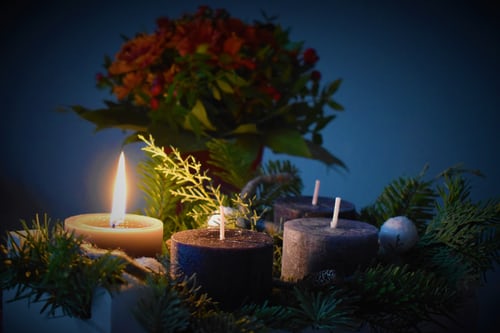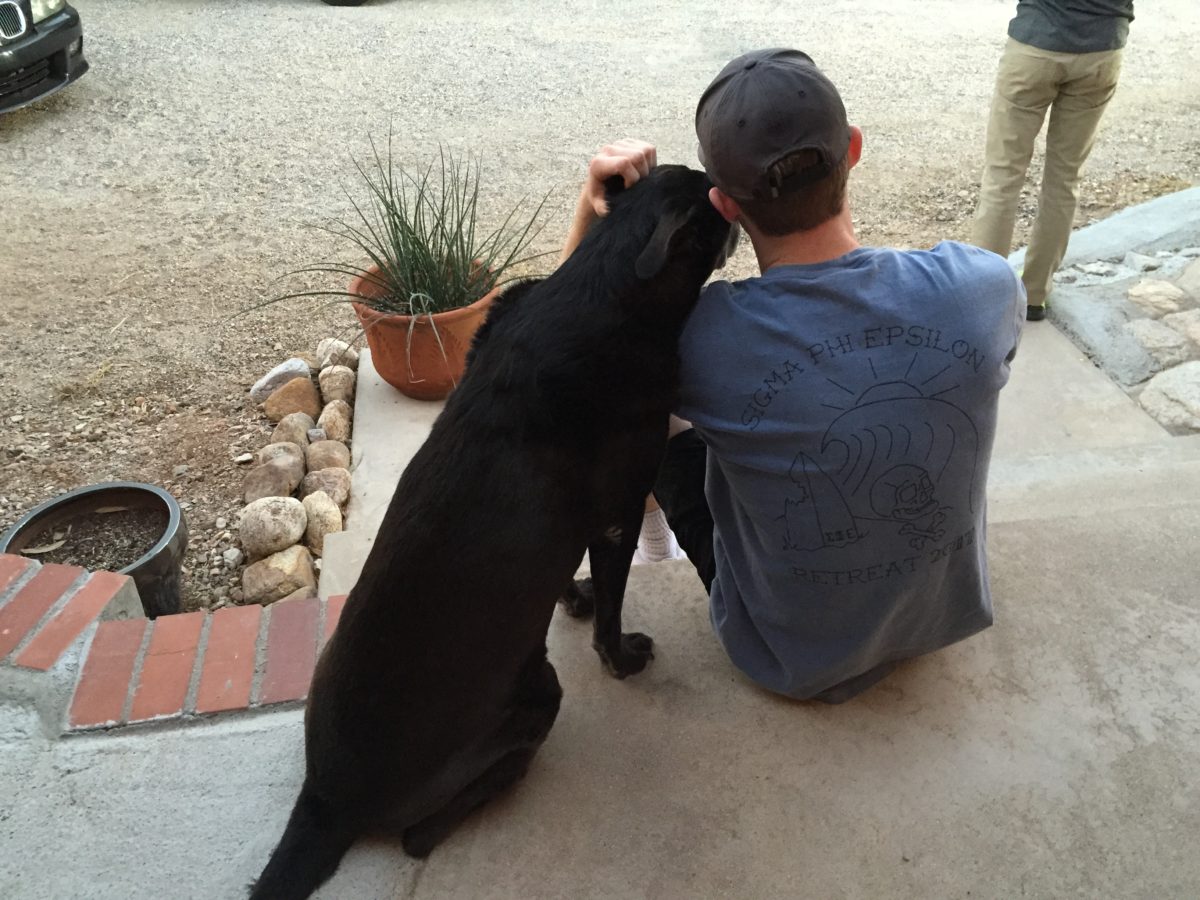ADVENT. Defined as the arrival of a notable person, thing or event. Recognized by Christians as the first season of the Christian year. In other words, when it all began. The exact dates are the four preceding Sundays leading up to Christmas Day.
But it doesn’t end there. For the faithful the term also means the coming or second coming of Christ.
A lot of us have been looking for that lately. That second coming. A lot of Christians thought COVID-19 was the crack in the second coming curtain. The opening prologue. Some still think it is.
Having Jesus return now and being caught up in the clouds with Him and swept off to glory without having to suffer and die certainly seems a more appealing option than contracting and having to suffer through a near-deadly case of the disease, or having a family member or friend die of it. Of having to stay cloistered at home, out of touching range with family and friends, classmates, co-workers, birthday parties, funerals, graduations, church worship and Bible study gatherings.
Actually, it’s a more appealing option than life in a normal year.
A yearly reminder, and look to the future—
Regardless of whether or not this is THE year, (Hint: no one knows the time or the hour), Christians are always called to be ready, looking, working, preparing. As one of my favorite mugs says, “Perhaps Today.”
And it’s always a good thing to celebrate that first coming, the one that stood the world on its head over 2000 years ago. The celebration that reminds us of the Who, what and why of Christmas.
And then look to the future and celebrate Christ’s future return. Plan for the party. Keep busy preparing for it, inviting guests, getting them ready for the feast, rejoicing over our future hope.
Because either soon or soonish, or not as soon as we’d like, Jesus is coming back. He promised He would, and He told us to be watching for Him.
A personal advent—
This year I can certainly relate to that watching and waiting for a baby to arrive on the world’s stage.
On Mother’s Day, my older son stuck an ultrasound picture up in front of his computer camera during our Mother’s Day ZOOM meeting. My younger son and I immediately knew what it was. (The engineer, working without his close-range glasses, was a little slow to catch on.)
To say it was one of the best Mother’s Day presents EVER is an understatement. The other two were the ones immediately following my older and younger son’s births. Yet, now, there are no adequate words to describe the joy, and the heady anticipation of progeny.
We’ve waited and watched and looked for since that glorious May day, talking about due dates, shower gifts, baby paraphernalia needs, having another ZOOM meeting for the “It’s a Girl!” gender reveal, nail chewing during some blood pressure spikes, and the two and a half days it took for her to arrive after inducement.
We were on emotional pins and needles. And to an extent, we still are. We haven’t seen our beautiful granddaughter yet, but we will soon. With weighty expectations of holding her in our arms, singing to her, tracing nose and ears, touching and brushing silky cheeks, and feeling baby fingers looped around thumbs nearly make me swoon in ecstasy.
So, to some extent, we’re still waiting and watching, preparing. Expecting. With eyes and hearts wide open.
I shouldn’t be any different with my Lord’s return. Advent then. Advent future. Looking back and looking forward. Always watching, being prepared. Expectant. Cognizant of the signs of the times.
It’s easy to get jaded and do the same-old, same-old at Christmas. But I doubt anything will look the same to any of us this year.
And that’s probably a good thing.
Maybe a new, reinvigorated appreciation for the meaning of the day will emerge in our hearts and lives. We’ll be more grateful. More repentant and more forgiving. More joyful.
We’ll take a serious look at what we missed this year, and what we didn’t miss. And what we can now live without and can no longer live with.
And Who we need to bring sanity and peace to this insane and crumbling and ugly world.
The month of December—
It’s hard to fathom that this is likely my last post of this notorious year. It seems to have dragged on too long and also sped by. So much has happened—in the world, our nation, and in my family. But slinking toward its end, it is.
I’ll be taking December off, to enjoy that new grandbaby, my family, and life. To dig into Advent. To read the story again—the old one and the coming one. To prepare my heart, and offer thanks.
Because within both lies hope. The kind of hope only the King of Glory gives. A hope and a future.
Something everyone is craving right now.

Invitation—
I hope you have an advent study selected and are already into the celebration. But if not, and you’re looking for some weekly reads, you can access my Advent posts on my other blog “Broken Hearts, Redeemed.”
“Advent: A Great Message for Today, and for the Future”
“Advent: A Season of Joy, Now and for the Future”
“The Advent and Maintenance of Peace”
“Christ is Born Means God is with Us!”
“Christmas: A Heavenly Timetable” (My nonfiction story that first appeared in a Chicken Soup for the Soul Christmas book.)
“A Season—and Life—of Hope” (Read this one right after Christmas.)
“He Might Come Tonight—Are You Ready?”
“12 Steps to Defeat Depression: Spirituality and Prayer, Part 2 (For a stronger start to the New Year.)
Until 2021, keep praying, keep preparing, and keep watching, waiting and expecting.
Perhaps today will be THE day!
And thank you, dear readers, for your support throughout this year. It hasn’t been easy or smooth sailing for anyone. And I appreciate you more than I can say.
Blessings and a Most Blessed Christmas to all of you!
Andrea
“Beloved, I pray that you prosper in all things and be in health, just as your soul prospers” (3 John).
Andrea Arthur Owan, M.S., A.T., R., is a fitness pro, speaker, award-winning inspirational writer, memoirist, and senior-ordained chaplain (IFOC). She helps people thrive physically, emotionally, and spiritually, and recover from grief, loss and trauma.





